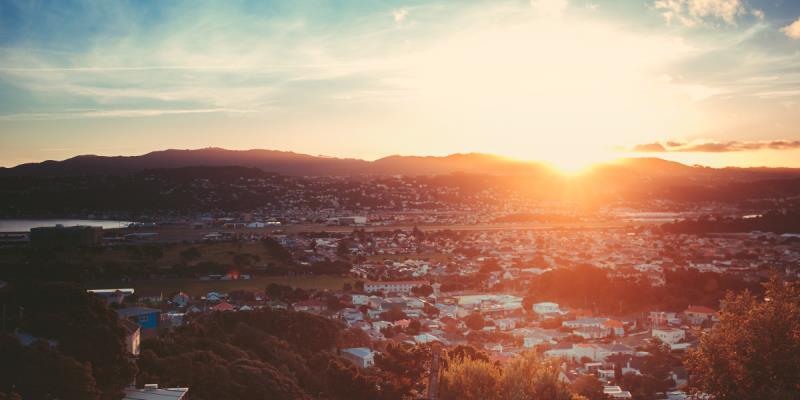Why do we have Daylight Saving Time?
Published on Wed Sep 26 2018 in Community
Each Spring, Kiwis set their clocks ahead one hour. This ritual, known as Daylight Saving Time, has been a part of New Zealand life for decades. It’s also one that inspires a good amount of grumbling in many households as we “lose” that precious hour of sleep!
The origins of DST
The creation of Daylight Saving Time (DST) is often credited to American statesman and scientist Benjamin Franklin. However, he thought of it as more of a joke than a practical invention. Franklin suggested that the city of Paris could save money on candles by moving the clocks ahead. That way, Parisians could make better use of natural sunlight in the mornings instead of burning candles well after the sun set. However, he never thought that such a thing would ever happen.
Whilst the seeds of DST were planted by Franklin in the 1780s, it wasn’t until the 1890s that it began to gain some popularity. In fact, DST as we know it was first proposed by a New Zealander!
In 1895, Kiwi entomologist George Hudson presented the idea for DST to the Royal Society of New Zealand. Hudson worked at the Wellington Post Office by day and collected insects after work. During summer, sunset happened so early that it interfered with his bug hunting. To remedy this, Hudson suggested setting the clocks forward two hours, so people could enjoy the summer sun for longer.
Hudson’s proposal was mocked by Royal Society members. They felt that resetting the clocks was confusing and unnecessary. Eventually, his idea caught on. Some regions and countries introduced some form of DST in the early 1900s, with widespread adoption around the world by World War II.
DST in NZ
New Zealand first observed DST in 1927, changing the date and time difference several times over the following years. But by 1974, the Kiwi government was ready to standardise this clock change. That year the Time Act was introduced, setting DST at one hour ahead of New Zealand standard time.
In 2007 more changes were made. The DST period was extended, and the start and end points we now use—the last Sunday in September and the first Sunday in April—were finally set. It was also agreed that the clock adjustment would happen between 2am and 3am, so fewer people would have their work schedule disrupted.
What are the benefits of observing DST?
Whilst Daylight Saving Time is generally accepted by Kiwis—82% of us approved of the extended DST period in a 2008 survey—it does cause a fair bit of grumbling. The inconvenience of checking and resetting the clocks is becoming less of a nuisance thanks to computers and smartphones, but many still wonder if it’s even necessary.
DST backers point to a few positives when making the case for the twice-yearly change:
- People get active. Setting the clocks forward seems to motivate people to enjoy the outdoors more during the “extra” hour—just as Hudson had hoped. This could prove important to fighting rising obesity rates.
- Tourism and retail get a boost. Longer evenings mean more people visit restaurants, go shopping or attend events.
- It could make us safer. Some studies show fewer robberies and accidents involving pedestrians during DST.
However, opponents can also make the argument for discontinuing the practice:
- We might not be saving energy. A lot of today’s technology—like TV, computers and air conditioning—uses electricity whether the sun is out or not. The amount of energy saved during DST is negligible (or may not exist at all!).
- It may impact our health. Losing an hour at the beginning of DST has been linked to heart attacks, whilst early evening darkness when it ends has been linked to depression. Lack of sleep may also contribute to workplace injuries and accidents.
- We might be losing money. The New Zealand economy misses out on around $40 million each year due to lost productivity caused by tired workers, an issue that comes into focus each time DST begins.
Spring forward
Next time you reset your watch, remember the Kiwi who started the world on Daylight Saving Time. Of course, with the grumbling that often follows this event, it may be an invention we don’t want to claim!
Curious about other dates on the calendar? Discover why Friday the 13th is such an unlucky day.
About Author: Momentum Life is a leading provider of Life insurance and Funeral insurance in New Zealand.
Sources:
The Huffington Post, Daylight Savings Time Invented By George Vernon Hudson, 19th-Century Entomologist
Te Ara: The Encyclopedia of New Zealand, George Vernon Hudson
New Zealand Government, Daylight saving
Time and Date, The Never Ending DST Debate
The content provided in this article is for information purposes only. The information is of a general nature and does not constitute financial advice or other professional advice. To the extent that any of the content constitutes financial advice, it is limited to Momentum Life products only and does not consider your specific financial needs or goals. You should consider whether the information is appropriate for you and seek independent professional advice, if required.
All product information is correct at the time this article was published. For current product information, please visit the Momentum Life website.
